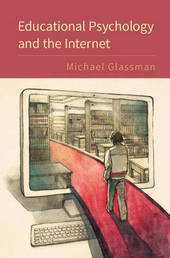
|
Educational Psychology and the Internet
Paperback / softback
Main Details
| Title |
Educational Psychology and the Internet
|
| Authors and Contributors |
By (author) Michael Glassman
|
| Physical Properties |
| Format:Paperback / softback | | Pages:331 | | Dimensions(mm): Height 228,Width 153 |
|
| ISBN/Barcode |
9781107479302
|
| Classifications | Dewey:370.15 |
|---|
| Audience | | Tertiary Education (US: College) | | Professional & Vocational | |
|---|
| Illustrations |
2 Line drawings, black and white
|
|
Publishing Details |
| Publisher |
Cambridge University Press
|
| Imprint |
Cambridge University Press
|
| Publication Date |
9 February 2016 |
| Publication Country |
United Kingdom
|
Description
The first comprehensive, research-based textbook on Internet-infused education, Educational Psychology and the Internet offers students an accessible guide to important issues in the field. Michael Glassman begins with an overview of the history that traces the evolution of the Internet and its significance for education. He outlines the current state of research, clearly defining terms that students will need to discuss larger concepts, such as hypertext and cyberspace. The second part of the book explores the practical applications of this research, which range from the individual-oriented to the generalized, including massive open online courses (MOOCs), open educational resources, and augmented reality. Key issues that affect teachers and students today, such as Net Neutrality and Creative Commons and Open Source licenses, are explained in straightforward terms, and often-overlooked differences - for example, between course management systems and learning management systems, and between blogs, social networking sites, and short messaging systems - are highlighted.
Author Biography
Michael Glassman is an Associate Professor in the Department of Educational Studies at the Ohio State University. He has published widely on Internet-related issues in education.
Reviews'Educational Psychology and the Internet is a text that would be most appropriate for educational psychologists and instructors interested in how to better structure their online learning environments to achieve student success.' Ngoc H. Bui, PsycCRITIQUES
|